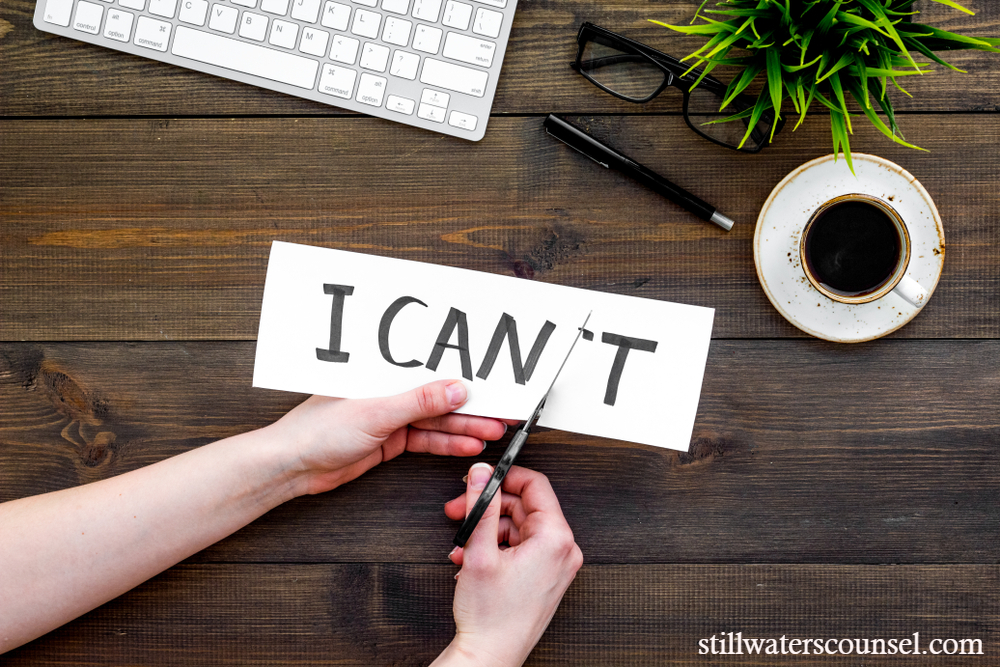Have you ever noticed that sometimes impressions from the past, prevent us from seeing the good in the present? Wondering why that is? It could be your self-esteem playing tricks on you.
There are people who seem to have everything going for them outwardly and yet, on the inside actually feel insecure, trapped in some strange circle where they can barely achieve their goals, even if they have all the tools inside themselves.
On the other hand, there are people who seem to have everything come easily to them. They graduate from college with seeming ease, excel in front of potential future bosses, and charm friends and partners without much apparent effort.
What’s their secret?
The answer may be healthy self-esteem.

What is self-esteem?
Self-esteem is an individual’s subjective evaluation of their worth. Self-esteem encompasses beliefs about oneself (for example, “I am unloved”, “I am worthy”) as well as emotional states, such as triumph, despair, pride, and shame. (Hewitt, John P. (2009). Oxford Handbook of Positive Psychology)
In other words, self-esteem is a feeling of emotional security that comes from believing in ourselves. It can determine whether or not we will succeed in something, complete a project, solve a problem, achieve the goal we are striving for, and cope with life’s difficulties.
Some of the enemies of self-esteem are exposure to stress, criticism, traumatic childhood or past relationships, lack of support and praise, failure to meet one’s own or others’ standards, family, emotional or work problems, feelings of rejection, lack of connection, and lack of security.
When we have low self-esteem, we often end up self-sabotaging. We might avoid trying new things, overlook positive comments and praises, and procrastinate work so as not to make mistakes or over do it. In any case, we risk impoverishing the wealth of our lives with low self-esteem. We can also recognize a lack of self-esteem through people pleasing and excessive kindness; such as not expressing one’s own opinion, fear of oneself and others, excessive self-criticism, and postponement of obligations. Here is a few indicative signs of healthy and unhealthy self-esteem:
- Signs of healthy self-esteem might be: optimism, flexibility, endurance, ambition, independence, tolerance, and the ability to problem solve.
Signs of unhealthy self-esteem might be: self-confidence as a pose, bragging, cynicism, aggression, reactive, overly sensitive and defensive, and a desire to wield power over others.
How to build self-esteem?
People who lack self-esteem are more focused on their failures than on their strengths and successes. Oftentimes, working on yourself doesn’t have immediate visible results. The process will take time. Allow yourself to question your attitudes and beliefs. It can seem scary to accept new information as fact, but that’s how growth happens. Experience can show you that you aren’t always right. When you make a mistake, don’t judge yourself too harshly and remember that others are also going through their own growing pains. Don’t set unrealistic expectations for yourself or others.
Accept yourself
Remember, no one is perfect. It is important to accept yourself despite all imperfections. Everyone has their value and rights just by being. Half of self-acceptance is the rejection of negative core beliefs we learned through abuse or neglect in our childhood or past relationships.

Define your desires and goals
It’s a good idea to clearly define your desires and goals, but also see your talents and abilities, as well as setting goals that are realistic and achievable. For example, if you plan to climb a mountain in two weeks, and you spent the previous year in front of the computer, failure caused by misjudgment will certainly not help your self-esteem. Not to mention, the lack of planning or preparation for climbing a mountain can be detrimental, if not dangerous.
So you need to know what you want, but also what you can do. To become more self-confident over time, you need to learn to praise yourself when you achieve a goal. Just as other people must earn our trust with something, the same goes for ourselves. We must be honest, fair, kind to ourselves, and responsible in accordance to the obligations and promises we have made to ourselves.
Pay attention to your qualities
You can try a simple, but effective self-esteem building exercise: Write a list of 10 positive qualities, strengths, or successes and read it every day out loud. At the end of the day, pay attention to successful, good situations and things that happened to you during the day. Find out how you contributed to that (“a friend helped me – and I contributed to building that friendship”). Be proud of your accomplishments.
Recognize the success
Maybe you’re so strict with yourself that even when you succeed, you don’t attribute it to yourself, but a combination of lucky circumstances. Acknowledge your success. Set realistic criteria for success (because if those criteria seem too high, you will know you tried your best). Remember the successes you are proud of.
Change the focus
Instead of worrying about “what if I fail?” and trying to avoid mistakes, set the focus on achieving goals and developing the necessary skills and knowledge. Obstacles and temporary failure are part of the path to success. If it doesn’t work at the moment, it doesn’t mean that you will never solve those problems. Study the situation and see what you can do differently. Obstacles can strengthen us and force us to draw additional strength, develop new skills, and importantly, seek support and advice.
Stop comparing yourself to others
Compete only with yourself. For example: how much you have improved today compared to yesterday, a month or even a year ago. Praise yourself for progress and set new goals every day. Listen to your needs and feelings. If you are sad, seek comfort. If you need support, ask for it. If you are angry because you don’t like the way someone treats you, you have the right to express that (in a healthy way). Find out which situations worry you and actively make changes to the things you don’t like.
Stop worrying about what others think of you
Naturally, we want to please others and leave a good impression. However, worrying too much often leads to unnecessary stress. While you’re worried about what other people think of you, just remember they’re probably worried about what you think of them. Then again, they may not be worried about you at all. Tell yourself “Okay, I would like to be liked by others, but it’s not possible to be liked by everyone. It’s okay if not everyone likes me. I’m my own person.”

You won’t improve self-esteem overnight. It’s built through learning, self-analysis, self-observation, and working on oneself. When you are aware of who you are and what you want, when you accept and love yourself, and when you become aware of your abilities and see the possibilities you have in your future, then you’ll be on your way to greatness.
Self-esteem is practiced and developed. There are various therapeutic techniques by which this is achieved. You can take a short test and find out how much confidence you have and what you can work on.
If you feel like you need professional support with building self-esteem, don’t hesitate to reach me here, and we can work out the plan that suits you best.

Self-evaluation is the best evaluation as it helps you know your worth the goods and bad side of yours and build up the skills you are not good at. Thank you so much for putting up this great and informative post I really enjoyed reading it.
thanks for info